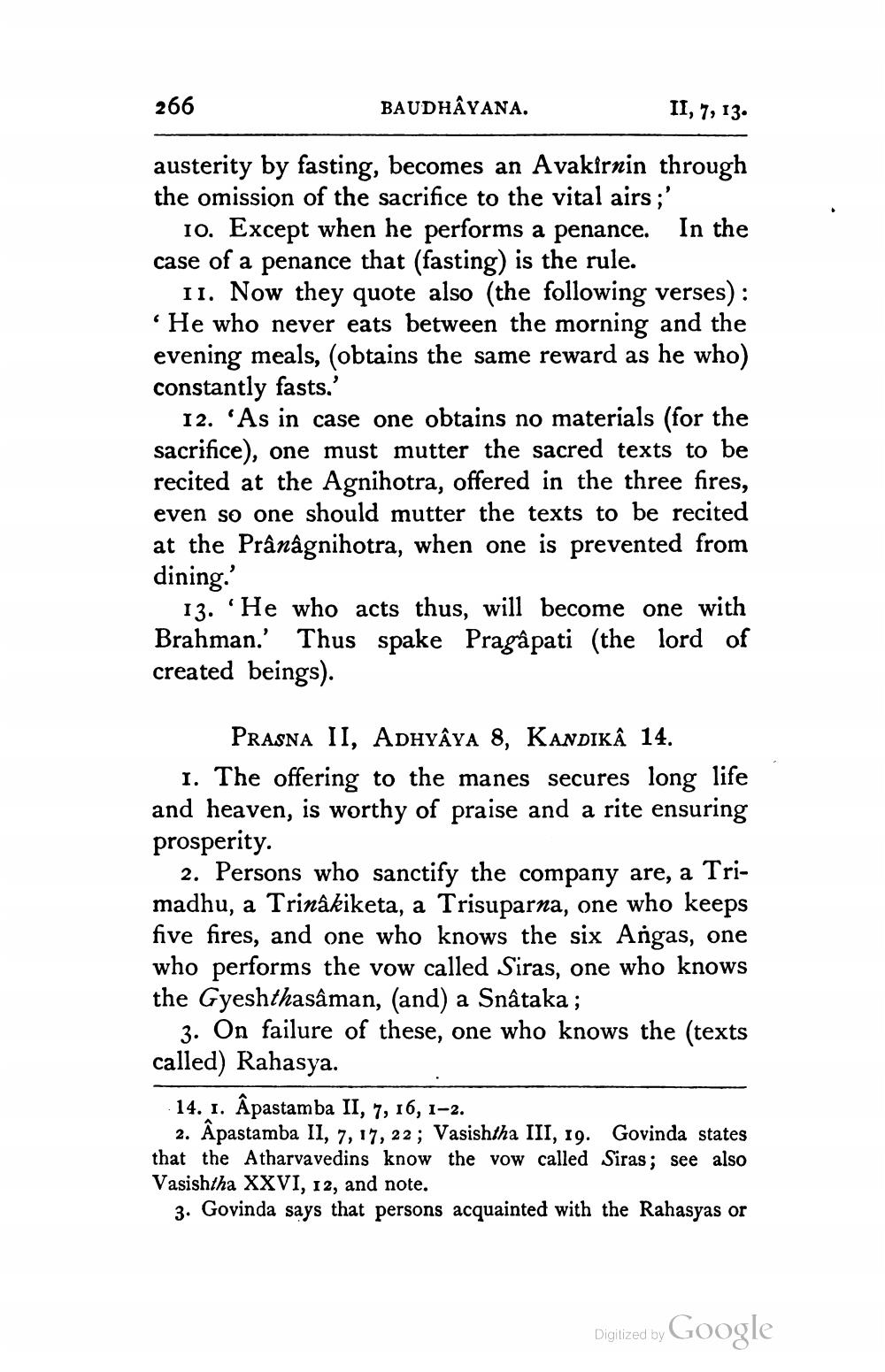________________
266 BAUDHAYANA.
II, 7, 13. austerity by fasting, becomes an Avakirnin through the omission of the sacrifice to the vital airs;'
10. Except when he performs a penance. In the case of a penance that (fasting) is the rule.
11. Now they quote also the following verses) : "He who never eats between the morning and the evening meals, (obtains the same reward as he who) constantly fasts.'
12. 'As in case one obtains no materials (for the sacrifice), one must mutter the sacred texts to be recited at the Agnihotra, offered in the three fires, even so one should mutter the texts to be recited at the Prânâgnihotra, when one is prevented from dining.'
13. “He who acts thus, will become one with Brahman. Thus spake Pragâpati (the lord of created beings).
Prasna II, ADHVẬYA 8, KANDIKÂ 14. 1. The offering to the manes secures long life and heaven, is worthy of praise and a rite ensuring prosperity.
2. Persons who sanctify the company are, a Trimadhu, a Trinâkiketa, a Trisuparna, one who keeps five fires, and one who knows the six Angas, one who performs the vow called Siras, one who knows the Gyeshthasâman, (and) a Snâtaka ;
3. On failure of these, one who knows the (texts called) Rahasya.
14. 1. Âpastamba II, 7, 16, 1-2.
2. Âpastamba II, 7, 17, 22; Vasishtha III, 19. Govinda states that the Atharvavedins know the vow called Siras; see also Vasishtha XXVI, 12, and note.
3. Govinda says that persons acquainted with the Rahasyas or
Digitized by Google




